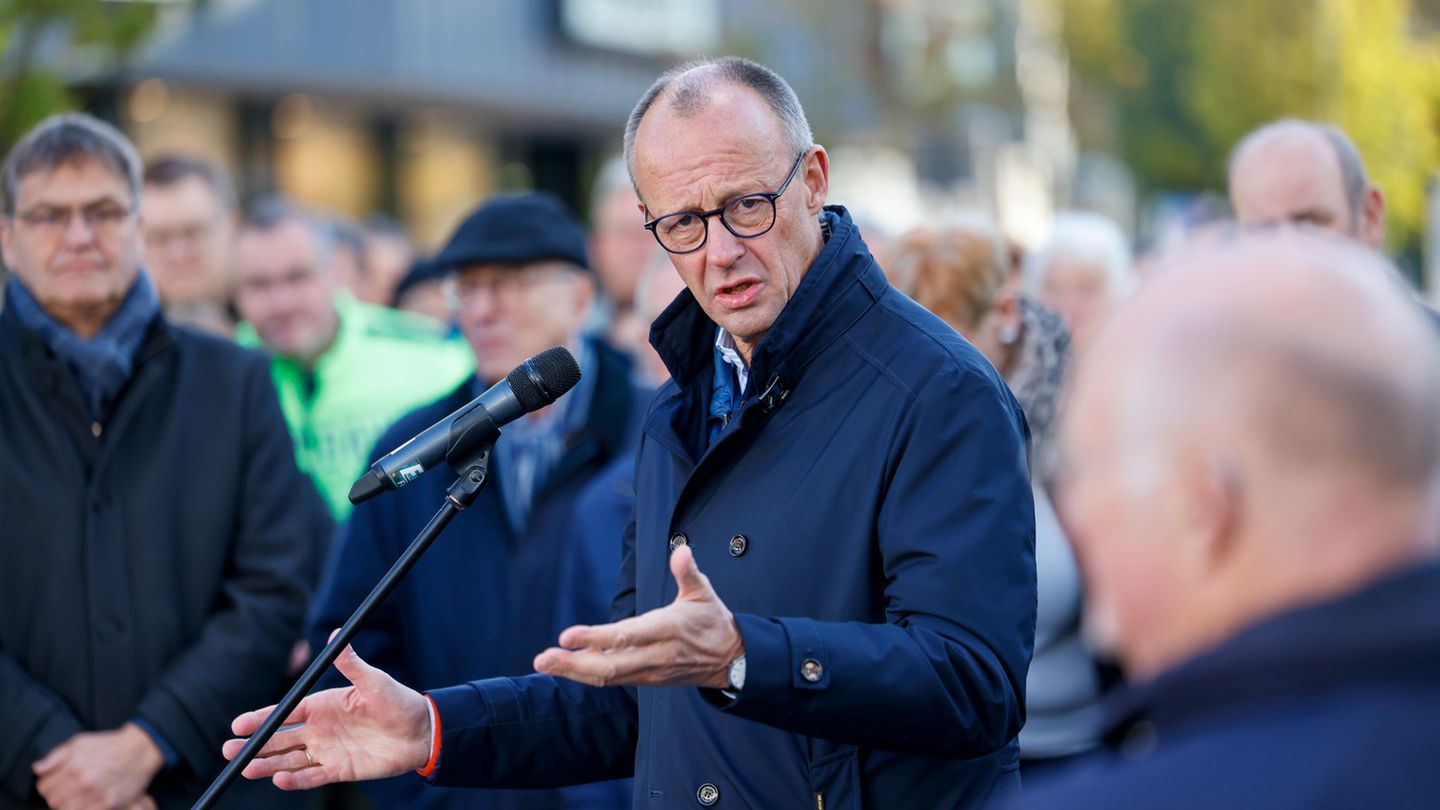The Czech Republic has imposed sanctions because an internet portal is said to have spread pro-Russian propaganda. The Federal Ministry of the Interior also sees Germany in the crosshairs of Russian attempts to divide the country.
The unmasking of a pro-Russian network in Europe is fueling concerns about Kremlin propaganda in Germany. “The Federal Republic of Germany also remains an important target of Russian influence efforts,” said a spokeswoman for the Federal Ministry of the Interior when asked.
The Czech government had previously imposed sanctions on the operators of the “Voice of Europe” website because it was part of a Russian influence operation. Their aim is to question the territorial integrity, sovereignty and freedom of Ukraine.
There were also searches in Poland in connection with the unmasking of a pro-Russian network. As the domestic secret service ABW announced on Thursday, 48,500 euros and 36,000 dollars (33,303 euros) were seized during the operation the day before in Warsaw and the Silesian city of Tychy. It is about activities to organize pro-Russian initiatives and media campaigns in EU countries. The purpose of this campaign was therefore to implement the Kremlin’s foreign policy goals.
Oligarch Medvedchuk is considered a confidant of Putin
Among those affected by the Czech sanctions is the oligarch Viktor Medvedchuk, who is considered a confidant of Russian President Vladimir Putin. The newspaper “Denik N” reported, citing intelligence circles, that the influence network also paid cash in cash to politicians from Germany, France, Poland, Belgium, the Netherlands and Hungary during visits to Prague.
The Federal Ministry of the Interior did not comment on payments to German politicians. The spokeswoman only confirmed that cross-border cooperation between European security authorities had “uncovered a Russian influence operation against the European Parliament.” The network around the Ukrainian national Artyom Machewskyj, who was also subject to Czech sanctions, “exercises illegitimate influence on the European Parliament on behalf of Russia. To do this, it uses politicians from several European countries and provides considerable funds.”
Interviews with AfD politicians
The portal had, among other things, published interviews with the AfD politicians Maximilian Krah and Petr Bystron, who are ranked first and second on the AfD list for the European elections. Krah told “Spiegel” that he had given “Voice of Europe” two interviews, one of them in Prague. “Of course I didn’t get any money for it, neither for myself nor for the party.” He also paid for the hotel himself. According to “Spiegel”, Krah explained that he knew Medvedchuk and Machewskyj from different contexts. He “never accepted money or benefits of value” from them either.
Krah’s office manager Jörg Sobolewski confirmed the statements to the German Press Agency that Krah had not received any money for the interviews. When it comes to interview requests, all media are treated the same: the interviews are carried out as long as there is time for them, regardless of the political orientation of the medium. Sobolewski also confirmed that Krah and Medvedchuk were acquainted with each other.
Bystron did not answer specific questions from the dpa about his interview on the portal. However, he wrote in an email: “The attack on ‘Voice of Europe’ is an attack on press freedom, which I condemn. A voice critical of the government should be silenced. In the emerging EU election campaign, politicians who are against the continuation of the Ukraine war, and journalists are defamed as agents of Moscow.”
The Federal Ministry of the Interior explained: “This case is another example of Russia’s extensive and wide-ranging influence activities. In recent years, Russia has built up a complex network of influence actors and instruments that it can fall back on. It can be assumed that the “Influence activities are primarily aimed at undermining trust in the ability and competence of European institutions to act and deepening existing potential for division in society.” The German security authorities would continue to do everything they could to investigate and stop the influence operations.
Source: Stern
I have been working in the news industry for over 6 years, first as a reporter and now as an editor. I have covered politics extensively, and my work has appeared in major newspapers and online news outlets around the world. In addition to my writing, I also contribute regularly to 24 Hours World.




